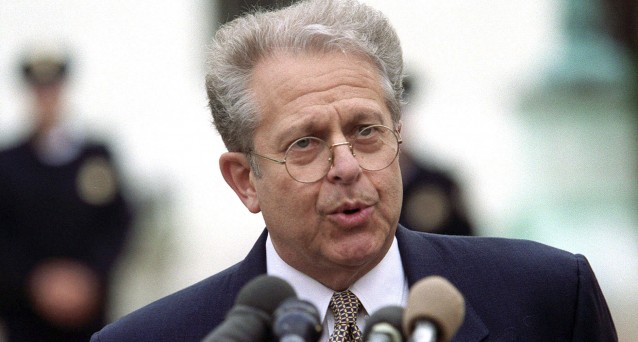This is a guest post by Climate Nexus.
While many legal experts have already picked apart his argument, Harvard Professor Laurence H. Tribe took his analysis on behalf of the world’s largest privately held coal company against the EPA Clean Power Plan (CPP) to The Wall Street Journal’s editorial page.
The opposition of fossil fuel interests to any climate change law or regulation has long been clear, and Tribe – one of the nation’s premier constitutional scholars – was retained by Peabody Coal to dispute the proposed regulations’ legal foundations.
Tribe’s arguments have already drawn substantive legal criticism:
– The Clean Power Plan recognizes federalism (the 10th Amendment) and state authority by setting statewide pollution reduction targets, and then giving the states the flexibility to achieve them or the option of a federal plan, contrary to Tribe’s claims that the plan would leave states “no choice” and would dictate the components of their energy mixes.
– The Clean Power Plan, like all environmental regulations, doesn’t violate the Takings Clause (the 5th Amendment) by failing to compensate industry for demanding it stop polluting, because courts have made clear no compensation is required.
– Far from an overreach, the regulation is rooted in the Supreme Court’s repeated rulings over the past seven years that the EPA has authority to curb dangerous carbon pollution:
· In its 2007 ruling in Massachusetts v. EPA, the Court established that the EPA can set carbon pollution standards for motor vehicles, under Section 202 of the Act.
· And in 2011, the Court decided in American Electric Power v. Connecticut that the EPA was similarly authorized to set carbon pollution standards for power plants under Section 111(d).
Despite Tribe’s scholarly credentials, his earlier fights against environmental regulation have not necessarily achieved industry supporters’ goals:
– Tribe fought against a foundation of the Clean Air Act –the nation’s first modern environmental law and perhaps its most successful – arguing against the National Ambient Air Quality Standards on behalf of the American Trucking Association, and lost in a unanimous Supreme Court ruling.
– The argument he helped develop on behalf of General Electric – that the federal Superfund law (CERCLA) was unconstitutional – was ruled against in lower courts and denied a rehearing by the Supreme Court.
While it is notable that one of Professor Tribe’s research associates was a young Barack Obama, it’s also important to note that Tribe, in addition to Peabody Coal, has been paid to argue on behalf of the opponents of Cape Wind, the proposed Nantucket Sound wind farm, whose opponents have been funded by William Koch. Tribe has also accepted payment to represent General Electric, the Consumer Energy Alliance, the American Trucking Association and the Petroleum Marketing Association of America.
Legal Planet, the joint Berkeley Law and UCLA Law forum, has collected resources on the CPP here. Experts who have voiced counter arguments include New York University Law Professor and Dean Emeritus Richard Revesz, Georgetown Law professor and former EPA Senior Climate Counsel Lisa Heinzerling, and Director of Harvard Law School’s Environmental Policy Initiative Kate Konschnik, who clearly describes the authority that section 111(d) of the Clean Air Act gives the EPA to implement the Clean Power Plan here.
Subscribe to our newsletter
Stay up to date with DeSmog news and alerts







